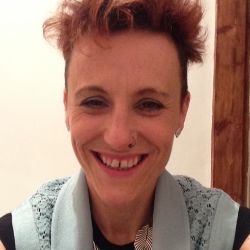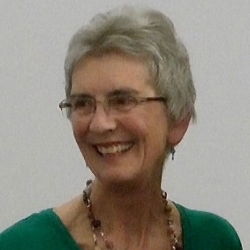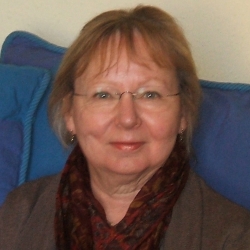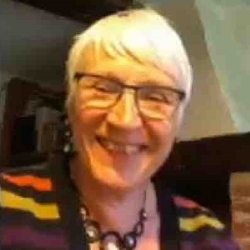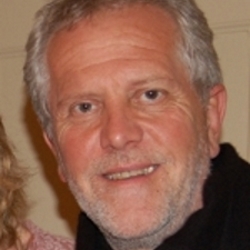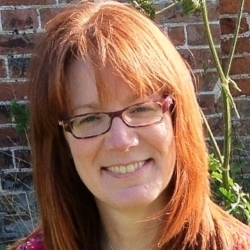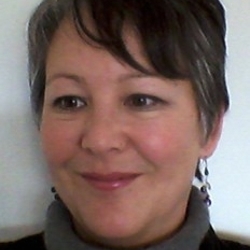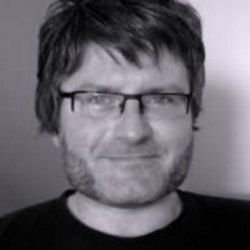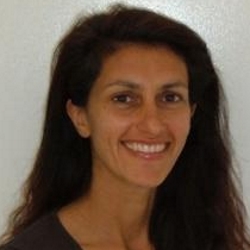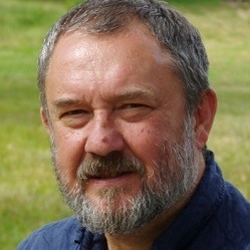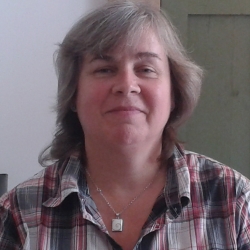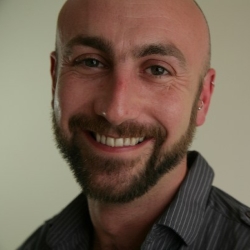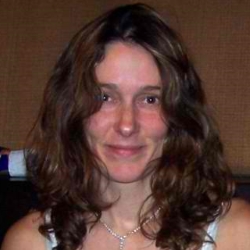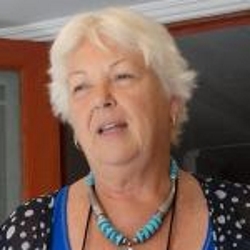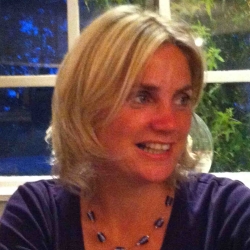Loading
Read MoreFight – Flee – Freeze – or – FLOW? This is About Functional Fluency – Susannah Temple
In this conversation, Susannah will be sharing some of her ideas about her Functional Fluency model – what it is, key aspects of how she created it and ways in which it can be used. She says, “Functional Fluency is a way to put ‘I’m OK – You’re OK’ into action to create mutual benefit. I believe people can learn to choose their behaviour and that this makes a huge difference to how they relate to others (and themselves). The FF model offers a menu for choosing how to behave, moment by moment.
‘It ain’t what you do – it’s the way that you do it – the functionally fluent way’.”
Read MoreNormalising Shame – Alison Ayres
In this hour I will introduce the ‘Innate Affects’, (Tomkins 1962, Nathanson 1992) and offer a brief introduction to shame in this context, including the Compass of Shame (Ayres 2014), relating this material to Berne’s existential Life Positions.
We will discuss how we can use and perhaps share these ideas with our clients, in order to help them to normalise their experience and I will offer the Compass of Resilience, my development of Nathanson’s model, as a process through which we can learn to stay in contact with others and with ourselves.
Read MoreThe Elephant in the Room – Marion Umney
Our body sense and the cultural aspects of that are an important part of our sense of self. We who live in the West all come under the strong influence of an obsessive hatred and fear of fat. It is deep in our unconscious and is linked to our fear of the shadow side of ourselves.
Our challenge is to recognise and to accept that we do feel fear or disgust, but that this is a projection of our own fear or disgust at our disowned propensity for greed or lack of self control and not to apply it in our relationship with the client.
Read MoreWhat Do You Say After You Say Goodbye? – Martin Wells
Eric Berne described how much we give away about our life scripts after we have said “Hello”.
In this conversation we will explore what happens in the space beyond script. When the script is exhausted and a letting go occurs.
The freedom that is revealed is both a blessing and a challenge.
Read MoreTA and Spirituality – Barbara Clarkson
How does psychotherapy happen and what influences the process?
Is it possible to consider a spiritual dimension to the process of psychotherapy?
What TA theory has been used to frame the possible overlaps between therapy and the spiritual journey?
How can theory from outside TA add to our understanding of these complex experiences?
Trauma and Blessing in the Family System – Enid Welford
Berne referred to the ‘family scripting’ that can be seen as a pattern through several generations, and the important influence of the grandparents. Thus difficulties with our immediate parents may have begun several generations in the past, and often seem to be related to unresolved traumas. Fanita English (1979) described these traumas as a ‘hot potato’ passed on to subsequent generations. Knowledge of these traumatic experiences is held within the introjected Parent, and the theme of this TA Tuesday is the usefulness of working at the source of the difficulty, i.e with the ancestor who first had the traumatic experience.
Unfortunately the knowledge we hold of our family history is not always available to our conscious mind. There are signs in the therapeutic process that indicate the presence of an impasse that spans the generations, and hopefully there will be time to discuss these signs. I also hope to discuss aspects of Family Constellations that inform my approach to these difficulties, along with TA techniques that Transactional Analysts can use to address intergenerational trauma.
Read MoreIdeas About Change – Matthew Elton
As practitioners and clients we carry with us a many ideas about what it means to be ‘unwell’ / ‘stuck’ / ‘broken’, ‘sad’, etc. as well as ideas about what it means to be ‘well’ / ‘un-stuck’ / ‘fixed’ / ‘happy’.
There is a risk that some of these ideas bring with them a set of limiting assumptions about what kind of change is possible, how hard it might be, how long it might take, and what the end point will look like etc.
Matthew will discuss some of the ideas about change that he has learned about from his clients. And he’ll describe how playful and creative challenges to such ideas can help clients come closer to their preferred way of being.
Read MoreA Creative Space – Lin Cheung
Lin is interested in creativity and physis and how to harness creative energy in our work as therapist. She will share with you some of her thoughts and ideas on creativity in psychotherapy and supervision and how to release creative energy in people.
Read MoreSomeBody in TA – Trevor Timms
Interesting me at the moment is the concept of Protocol being evoked in the therapeutic relationship ( Cornell ); the expression of physiological discomforts, escalations or minimizations of affect, as a means of self-regulation ( Erskine ); Gratitude, a theory put forward by Melanie Klein; Functional Fluency from Suzanne Temple.
Read MoreThe Overweight Patient: A Psychological Approach to Understanding and Working with Obesity – Kathy Leach
There are 3 questions that I would like us to think about during this #TATuesdays event.
1. Do I understand the experience and life of an obese person in our culture? The overall picture, media, attitudes, prejudices, medical models and their implications?
2. What are the differences in Long and Short term issues of weight and the clinical implications of these differences?
3. What is the aim of psychotherapy with this client group?
The Challenge of Leadership & Change in Organisations: A TA Perspective – Debbie Robinson
Many organisations are struggling with economic, technology and cultural challenges – how can we influence organisations and develop leaders to create vision, cohesiveness and accountability rather than command and control, fragmentation, conflict and stress?
Debbie will discuss TA concepts that can support change in organisations and enable leaders to develop and grow teams that have the resilience to perform and thrive.
Read MoreContact After Contact: TA and the Treatment of Combat-Related PTSD – David Harford
David has worked in private practice in Edinburgh since 2008; his clinical work evenly divided between the provision of TA counselling and psychotherapy to Scottish armed forces veterans experiencing combat-related PTSD and a similar service for “civilian” individuals and couples from premises located in Leith.
Read MoreNeuroscience and Transactional Analysis – David Gibson
This session wae a discussion of the value of neuroscience and psychotherapy. With the development of neuroscience, psychotherapists are beginning to understand in a more scientific way how psychotherapy impacts on the neural pathways of the brain.
Read MoreEducation Matters: An Introduction to Educational Transactional Analysis – Giles Barrow
Giles Barrow (TSTA – Ed) offers a personal view about some of the distinctive features of educational transactional analysis (EdTA).
The seminar will include ideas about central theory and models in EdTA, and thoughts on underpinning philosophy. An important consideration will be exploring the distinction between educational TA and TA in education, arguably the central question for those practitioners interested in CTA in the field education.
Read MoreThe Balance of Power – Carol Lucas
The issues of power within the therapy relationship are complex. As therapists and ordinary human beings, how do we think about power? How do we exert conscious and unconscious power? How do we share power and how do we address the ethical questions that the concept of power inevitably raises within a listening framework filled with values of self, others and society?
Read MoreResources in the Parent Ego State – Frances Townsend
I am interested in the way the Parent ego state is sometimes seen in a negative light, rather than a resource and an attachment to the wider world, giving us our sense of belonging. I am also interested in the line between Parent and Adult ego states and how we differentiate them when defining reality.
Read MoreTA & Positive Psychology – Suzanne Hazelton
In this #TATuesdays Suzanne will look at the way Positive Psychology and TA are a potent combination to enable people to thrive.
Suzanne will talk about Berne’s concepts of “reachback and afterburn” and the connection between Physis and Positive Psychology.
Read MoreBeing with Others: Musings on Autonomy and Attachment – Jim Davis
Being with others – at work, in intimate relationships, in therapy – faces us with a fundamental, inevitable, and lifelong challenge of both being fully, spontaneously, me and fully, securely, attached to you.
Jim presented some ideas on the inherently and developmentally relational nature of self, with implications for some key concepts in Transactional Analysis theory and practice.
Read MoreBeing-centered TA: Berne, Heidegger, and Existential Phenomenology – Robin Hobbes
Loading
Read MoreMe, My Family, My People: Social Identity and Radical Psychiatry in Transactional Analysis – Karen Minikin
The radical psychiatry movement in the late 1960’s and 1970s proposed all mental difficulties are forms of alienation.
At the social level, this means feeling isolated from our work and relationships. Internally, we may feel psychologically alienated from different parts of our self.
This #TATuesday discussion explores the significance of social identity in TA and the ways in which radical psychiatry can inform our thinking and practice.
Read MoreSomatic Process in Therapy – John Heath
I am still a talking therapist first and foremost, using TA as my main modality, but I have learned to integrate somatic data into my day to day work. Working with an awareness of body process has the power to deepen and accelerate the talking work. In this seminar I hope to share some of my enthusiasm for this way of working and perhaps to inspire others to extend their existing clinical skills.
Read MoreNew Models of Grief: Implications for Assessment & Practice – Aideen O’Hagan
Aideen talked about some of the new theoretical models for understanding grief and the process of bereavement.
Not everyone needs bereavement counselling and Aideen talked about the assessment process used within the Hospice to identify people who may benefit form bereavement counselling.
Aideen also talked about the new models and their implications for practice as well as the overlap with some familiar TA concepts.
Read More#TATuesdays – A TA Perspective on Depression – Mark Widdowson
Mark discussed some of his research findings about TA and depression and explored some ways of understanding and working with depression using TA theory.
Read MoreMindfulness Skills for Therapists – Rita Harvey
In this workshop Rita will give you a “taster session” of her Mindfulness Skills training. We will practice together an exercise and talk about why mindfulness is so beneficial, for our clients, but also ourselves as therapists.
You don’t need any previous knowledge of mindfulness to participate and enjoy this time, and you can ask question and involve yourself “in the present moment”. All you need is an open mind and a gentle curiosity.
Read MoreAutism and Transactional Analysis – Dena Marshall
Individuals with Autism (usually higher functioning Autism/Asperger Syndrome) will frequent the therapy room, largely undiagnosed; seeking solutions to their relational, emotional, and social issues.
Read MoreTA: A Model for Understanding Mental Health and Relationship Based Treatment Planning – Kathie Hostick
As an alternative to the medical model most often used in mental health I relate to specific TA concepts to make sense of many clinical presentations such as obsessive compulsive disorder, eating disorders, post natal depression, self harm etc. Clients will often present with these symptoms and a further diagnosis of personality disorder due to their developmental and relationship issues.
Read MoreTrauma & Transactional Analysis – Michael Gavin
Michael Gavin is deeply passionate about the role Counselling & Psychotherapy can play in helping people who have experienced Trauma.
Michael has extensive experience in working with people who are experiencing Post Traumatic Stress. He has agreed to talk to us about how his work has been informed by the theory of Transactional Analysis and how he thinks about the clients embodied experience, engaging with the whole person of the client to facilitate recovery.
Read MoreParent Ego State – Adrienne Lee
Adrienne will discuss and explore parent ego state theory and introduce her new ideas about the different roles or parts of parent that are expressed externally as well as experienced internally.
She invites the audience to join the theoretical discussion and apply it to their own practice with clients and to their own parenting experience.
Read MoreUsing TA with Criminal Clients – Joanna Beazley Richards
In this TA Tuesday Joanna introduced TA Psychotherapy with clients who have criminal tendencies. She talked about her work with sex offenders, people who are violent, who steal etc.
She also looked at TA assessment of these of these clients as well as treatment approaches.
Read More#TATuesdays – Transactional Analysis in the Postmodern World with Helen Rowland PTSTA
The postmodern critique of truth and reality is starting to have a significant impact on the practice of psychotherapy, but its influence often remains unspoken. In this TA Tuesday I’d like to open up a conversation about truth, reality and psychotherapy and explore what transactional analysis can bring to the postmodern table.
Read More#TATuesdays – An Open Dialogue with Leilani Mitchell
Leilani Mitchell very generously agreed to step into the breach as our presenter has had to postpone their appearance.
Bravely Leilani invited an open dialogue about anything TA and enjoyed a lively and dynamic discussion!
Read MoreA Professional Journey: Towards a Relational Approach – Corrie Van Halm
Corrie very generously agreed to spend an hour with us thinking about her professional journey, she notices her original training as a Transactional Analyst and her move over her career to an approach that reflects her deep commitment to the therapeutic relationship and a relational approach to TA.
Read MoreTA In All Its Shapes and Sizes! – Leilani Mitchell
TA is a great tool that can be used in a range of ways, my experience is that TA therapists in particular often limit themselves to using their skills and knowledge within the therapy room, but there are many other areas we could apply what we know.
I talked about TA as a psycho-educational tool and shared some ways that we at The Link Centre facilitate learning TA concepts while inviting growth and development in our students. We mostly use these ideas when training therapists but they can be applied in many different settings.
Read MoreTA Does The Business – Richard Maun
In this interview Richard talks about how TA has helped him run his own business successfully and how he uses it when coaching and delivering organisational change.
Richard is a business coach, best-selling author, hosts a weekly business radio show and has been awarded Accredited Teacher status at Cranfield University. He has taught TA skills to executives and managers and used TA to benefit hospitals, SME’s, charities and single-handed businesses. His secret mission is to write a whole book about Physis, and he’s started with chapters about it in his books Bouncing Back and Riding the Rocket.
Read MoreTA with Kids in Care: Being Part of a Therapeutic Community – Clifton Supple
Clifton Supple is Clinical Director of Physis Quantum (www.physisgroup.co.uk) recently established in Shropshire to work with children and young people who present a complex range of emotional needs, inappropriate / harmful sexualised behaviours, attachment disorders, abuse reactive behaviours and trauma.
He is intending to discuss the culture that been developed upon an explicit commitment to a whole team approach focused upon the integration of therapeutic care, educational provision and clinical components to maximise the opportunities and outcomes for the young people they support.
Read MoreTA: An Evidence-Based Therapy by 2020? (Interview)
In this interview, Mark will talk through some of the findings from his research on the outcome of TA Psychotherapy for depression, which demonstrate that TA can be an effective therapy for depression.
Mark’s vision is for TA to be recognised as an evidence-based therapy by 2020, he is also looking forward to talking about a systematic research strategy for the TA community and a series of small-project research ideas which can be taken forward to build the evidence base for TA therapy.
Read More